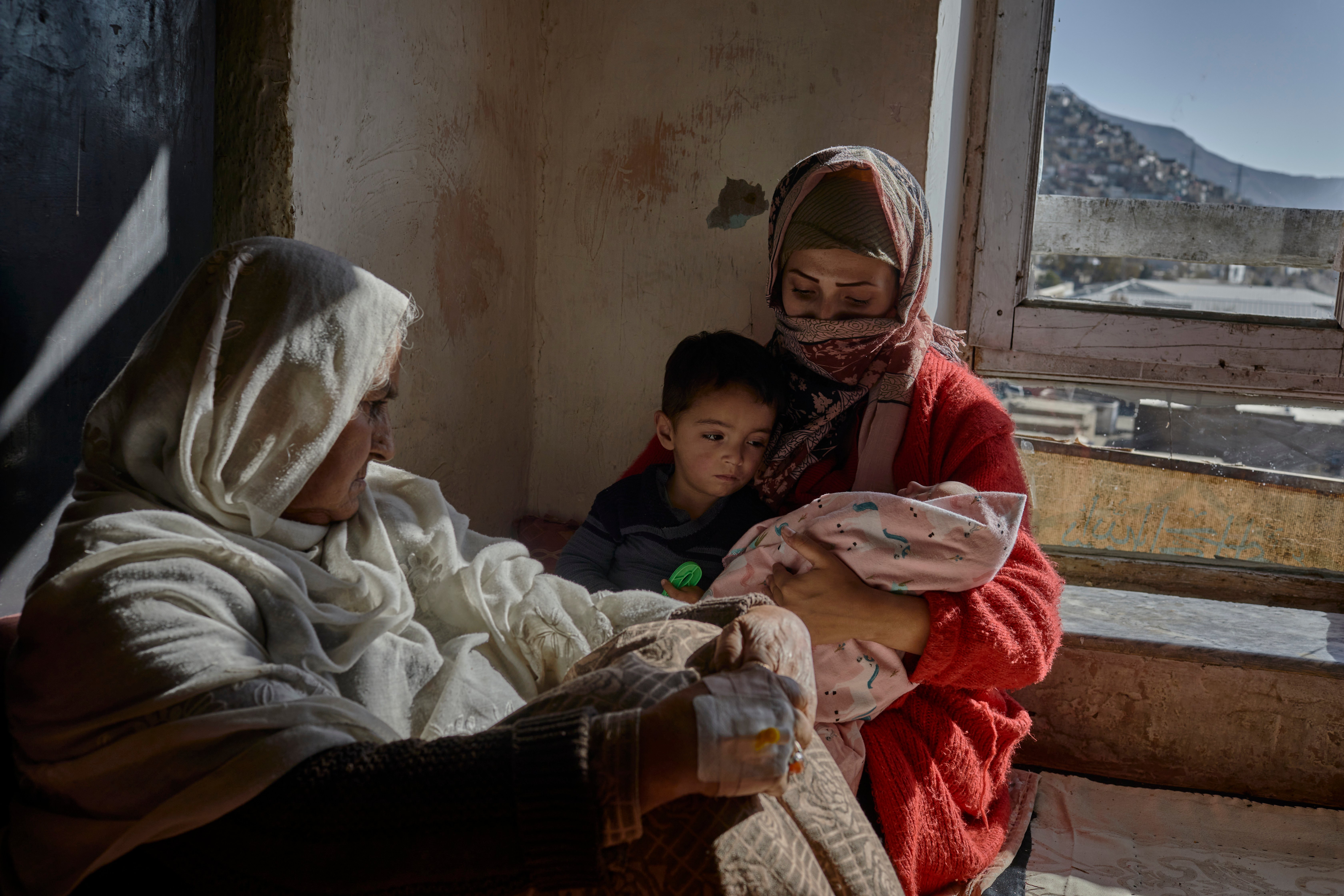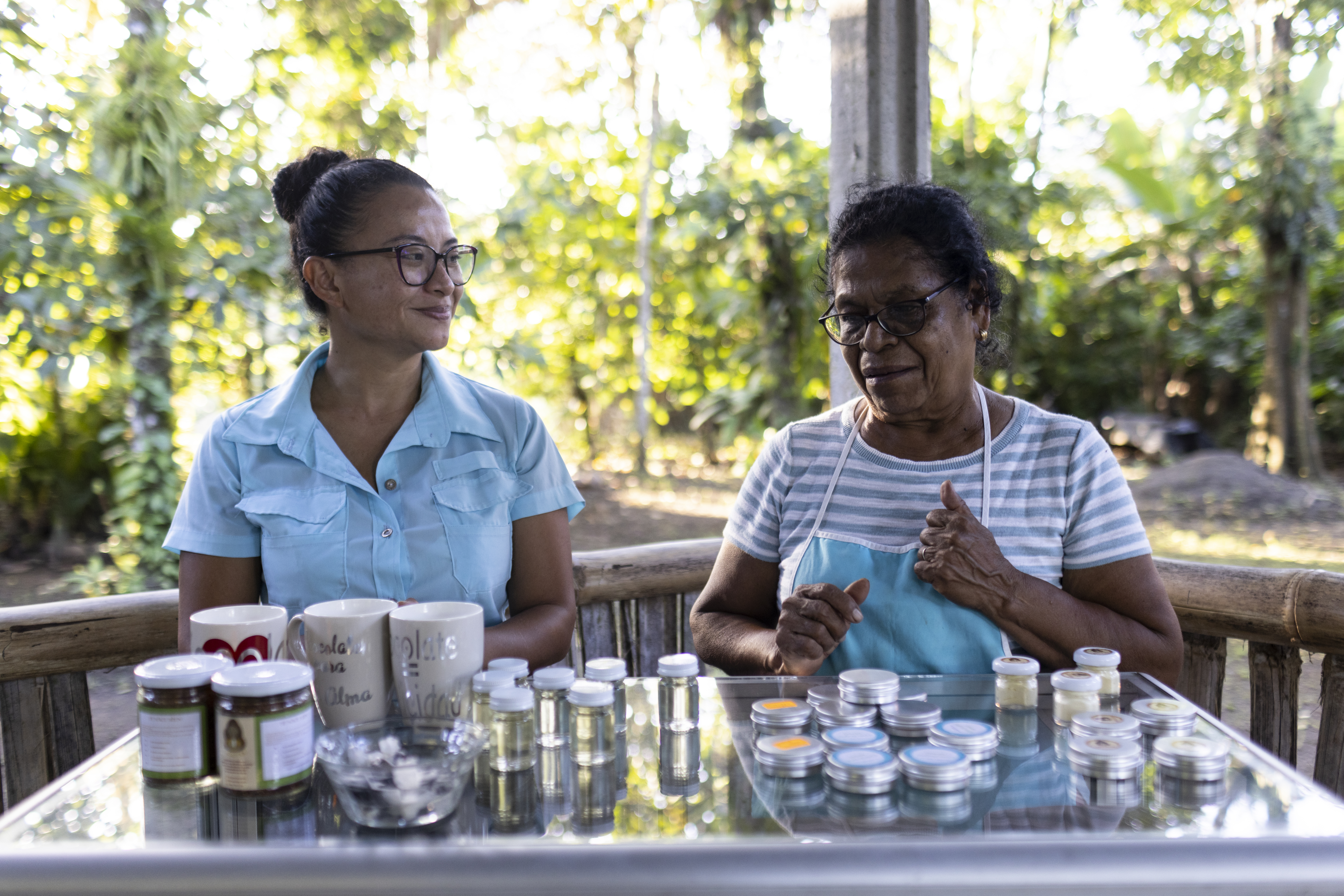Afghan women make history by being elected to National Assembly
Afghan women make history by being elected to National Assembly

KABUL, Afghanistan, November 14 (UNHCR) - The final results of Afghanistan's landmark parliamentary elections were only declared on Sunday, after several delays, but Shinkai Karokhail was already at work, planning the next stage of her extraordinary journey from refugee to national representative.
From behind her desk in a tiny office in Kabul, the 36-year-old mother of four children is happy to discuss her plans to act on the simple pledge - to fight for the rights of women - that won her a seat in the 249-member Wolesi Jirga, or National Assembly. There were a total of some 6,000 candidates standing for the National Assembly and Provincial Councils.
"I was surprised to find that I had won, but now I feel a great responsibility to prove myself worthy of this position," she said. "Those who voted for me are expecting progress in the struggle to secure more rights for women in a country that remains extremely male-dominated."
By receiving 2,107 votes in the September 18 election, Karokhail secured one of the nine seats allocated to Kabul province. She will take up that seat in just over a month, when the Wolesi Jirga convenes for its inaugural session in December.
It is a remarkable achievement for a woman who, until 2002, lived as a refugee in Pakistan, having fled her home 18 years earlier during the war against the occupying Soviet army. Like millions of others, her desire to return home after the withdrawal of the Soviets and subsequent collapse of the communist government, was thwarted as Afghanistan stumbled into a constantly evolving and seemingly never-ending civil war, that only came to an end when the Taliban regime fell in late 2001.
"I am grateful that the Pakistani people allowed me to escape the violence," she said. "But I am also aware that some of the best years of my life were spent in exile. I feel that there is a lot I have to do to make up for that time."
But Karokhail's years in Pakistan were not wasted. Together with others, she formed the Afghan Women's Educational Centre, which provided literacy classes as well as English-language courses to other refugee women in the Pakistani cities of Islamabad and Peshawar.
The UN refugee agency UNHCR, the World Food Programme and their NGO partners engineered a revolution in Afghan girls' education when, in the mid-1990s, they essentially started bribing refugee families in Pakistan to send their girls to school by providing a large can of cooking oil per month to those that did so. After a hesitant start, the idea of educating girls was quickly accepted by refugee parents, having been strongly resisted during the first 15 or so years of the Afghan refugee crisis. Quite large numbers of Afghan girls had also been receiving state-assisted education in Iran, where female education was well established.
By the time refugees began returning to Afghanistan in huge numbers after the fall of the Taliban regime, it was no longer such an issue - an ideological revolution that may well have played an important role in making the idea of female representation in the National Assembly more acceptable than it had been in the past in this most conservative of societies.
Through her work for the Afghan Women's Educational Centre, Karokhail was one of those playing an important role in this process. The courage of Afghan women who pioneered education for girls and adult women in Pakistan should not be underestimated.
"Knowing the value of education and the fact that Afghan women during the Taliban years were forbidden to attend school, I was determined to offer women in my own country the chance to learn to read and write when I returned," said Karokhail.
In 2002, after approaching the UN refugee agency for assistance, she made the journey home and quickly set about establishing literacy centres outside of the Afghan capital.
"When I returned I found that the educational needs among women in Afghanistan were much greater that I had found in Pakistan."
Through her efforts, thousands of girls and women have been able to embrace what they were denied under the Taliban - the chance to learn.
"The challenges and difficulties that lie ahead for women in this country are enormous," she says. "But I believe that by working with the other women elected to the Assembly we can ensure that the voices of women are heard."
Karokhail will be joined by 67 other women who have also won seats in the Wolesi Jirga. Among them is another former refugee in Pakistan, Malalai Joya, who first came to prominence when she spoke passionately about women's rights at the Loya Jirga in Kabul shortly after the demise of the Taliban. And Fauzia Sadat Gailani, who caused widespread surprise by topping the polls in the western province of Herat with just under 17,000 votes. Gailani had spent almost half her life as a refugee in Iran, has six children and has set up a fitness centre in Herat - a remarkable development in such a conservative nation.
"Ever since I was a child, I hoped that one day I would be in a position to help my countrymen and women," says Karokhail as she looks at the papers piled on the desk of a newly elected member of the Afghan National Assembly - her desk. "Now that time has arrived."
By Mohammad Nader Farhad in Kabul, Afghanistan









